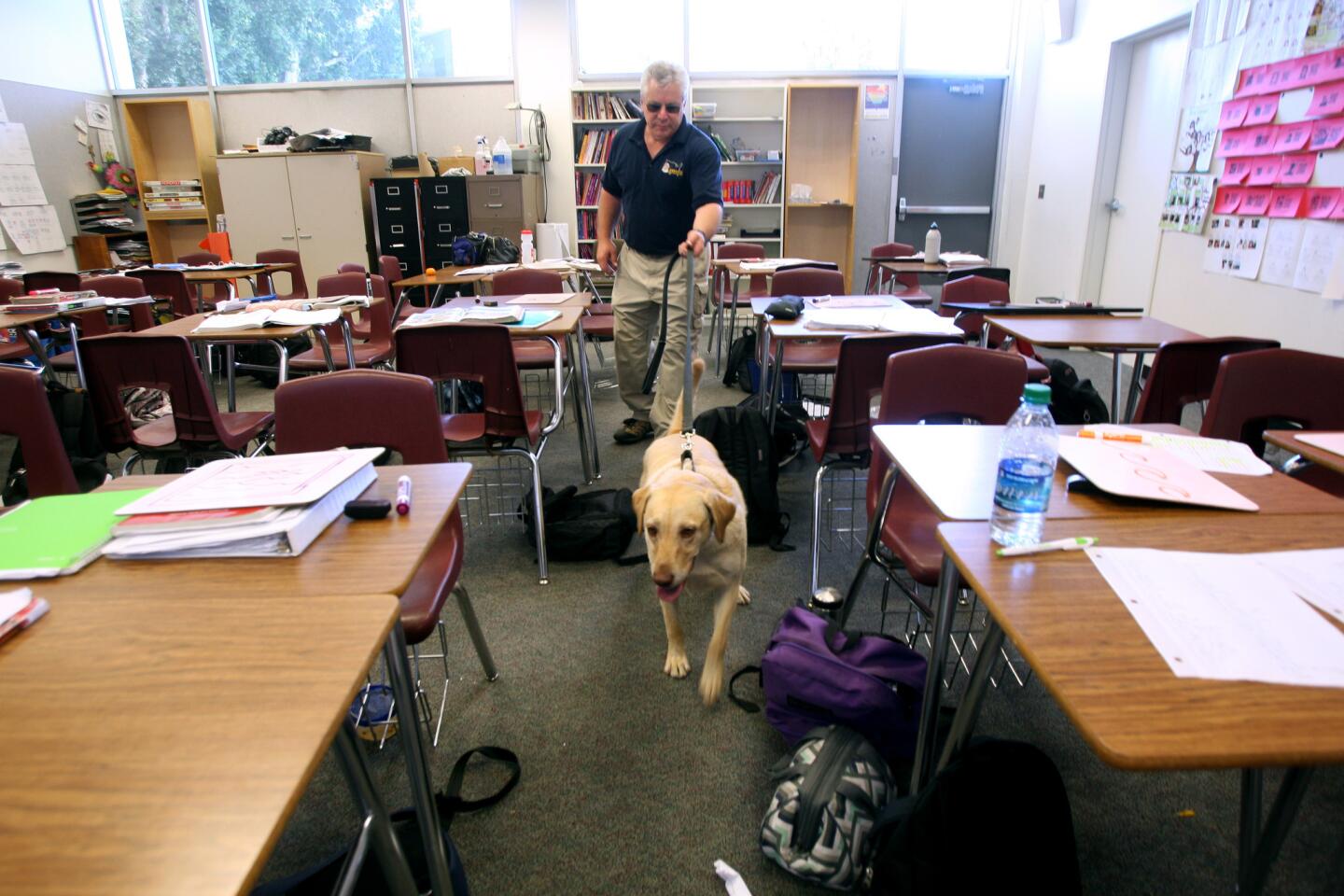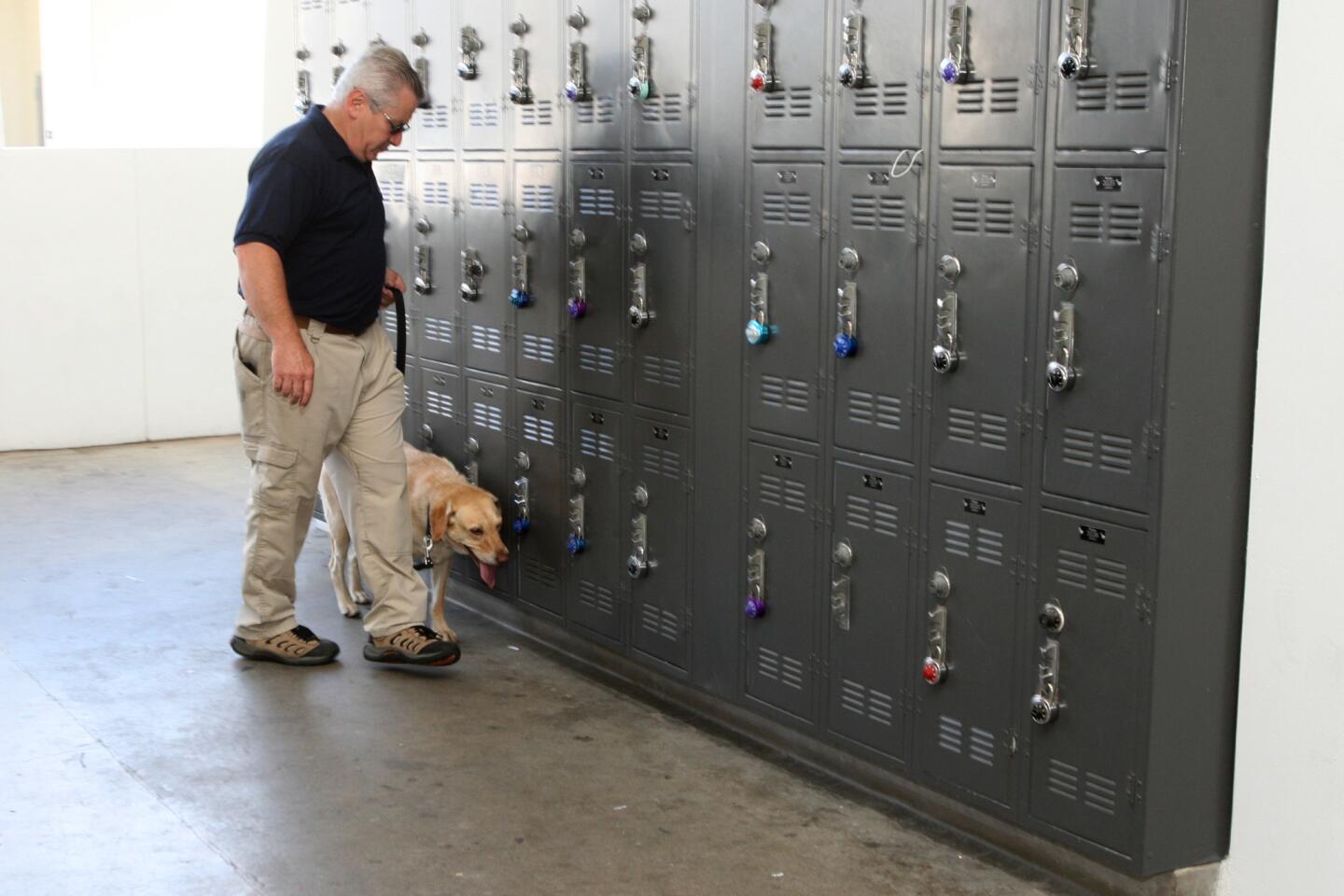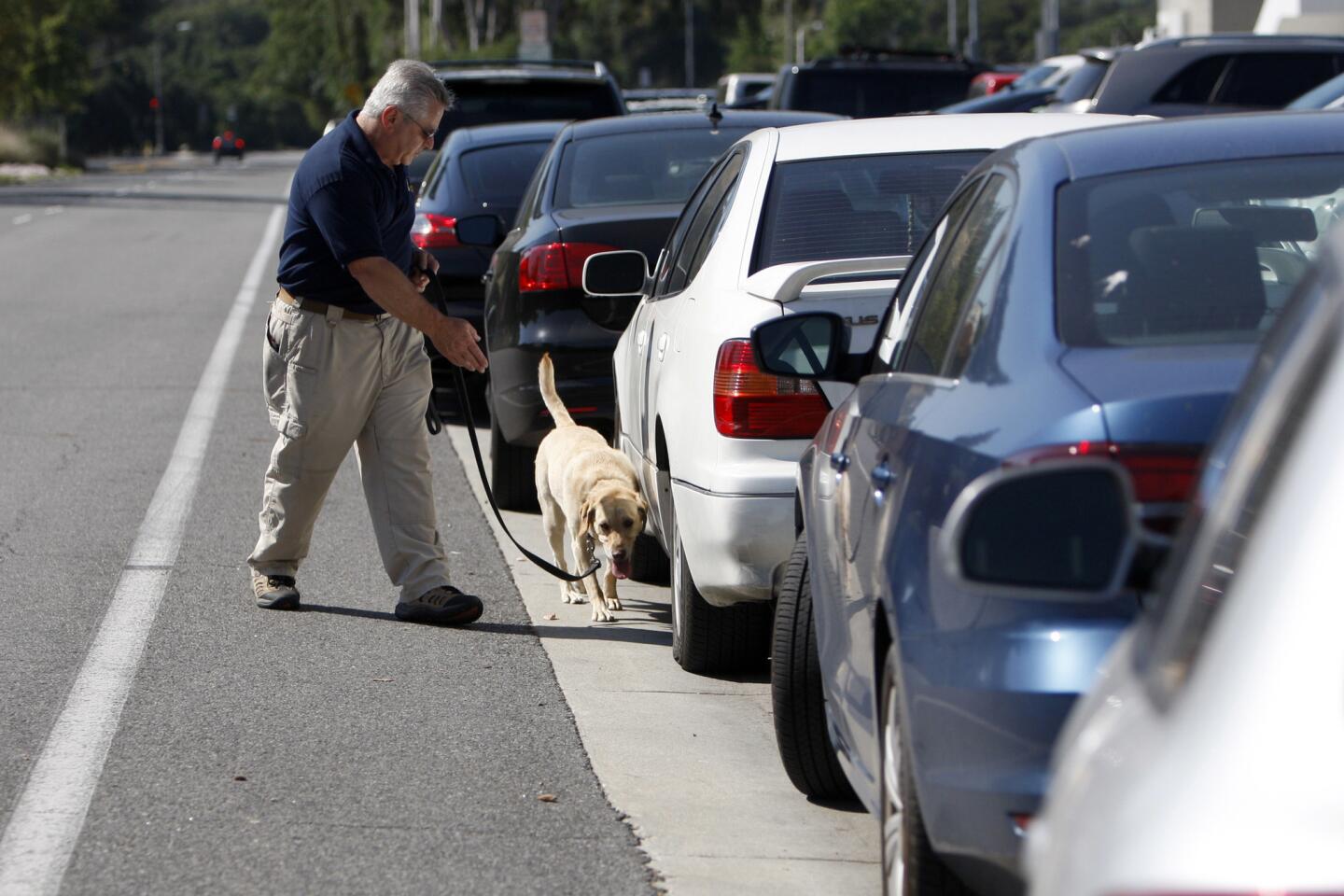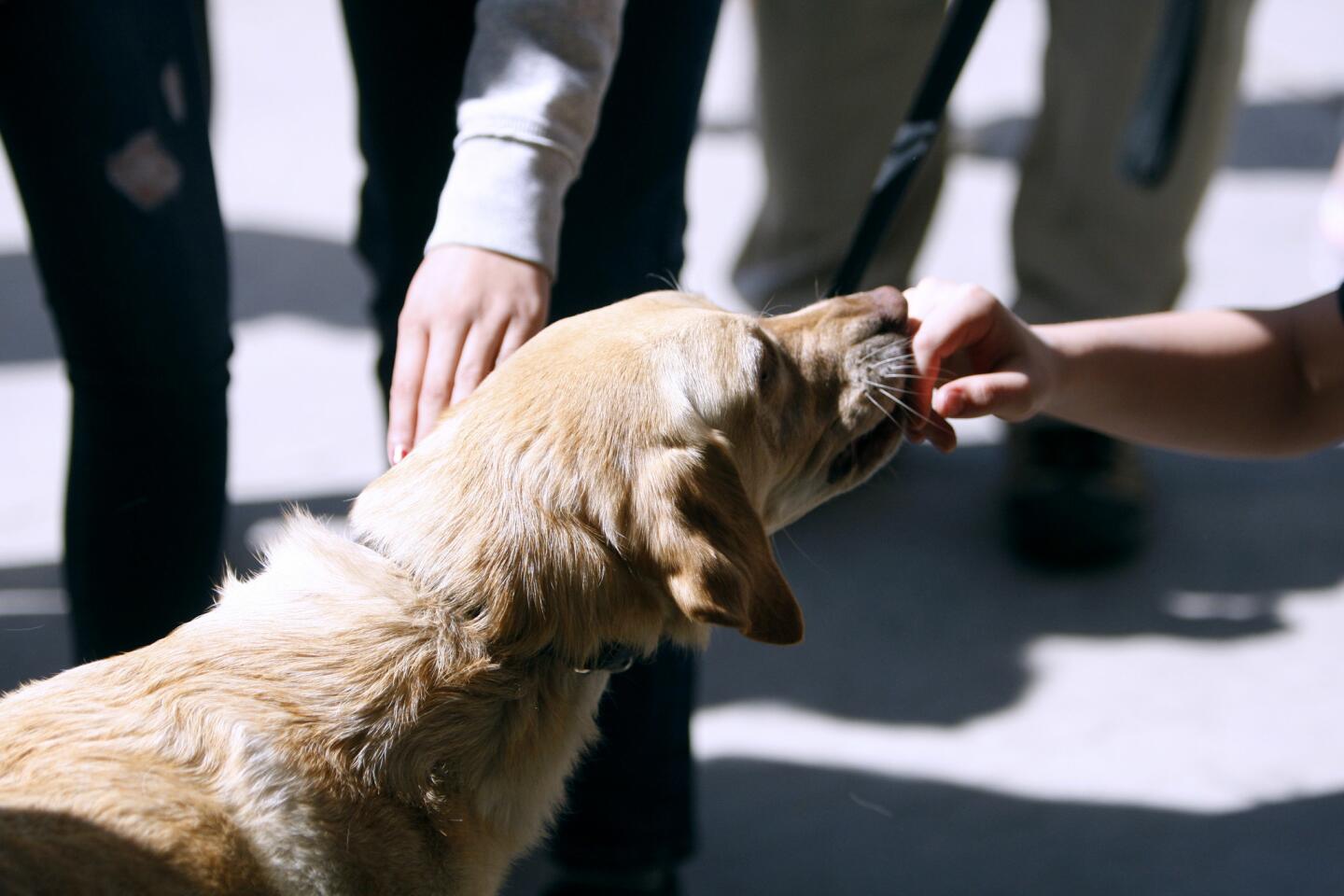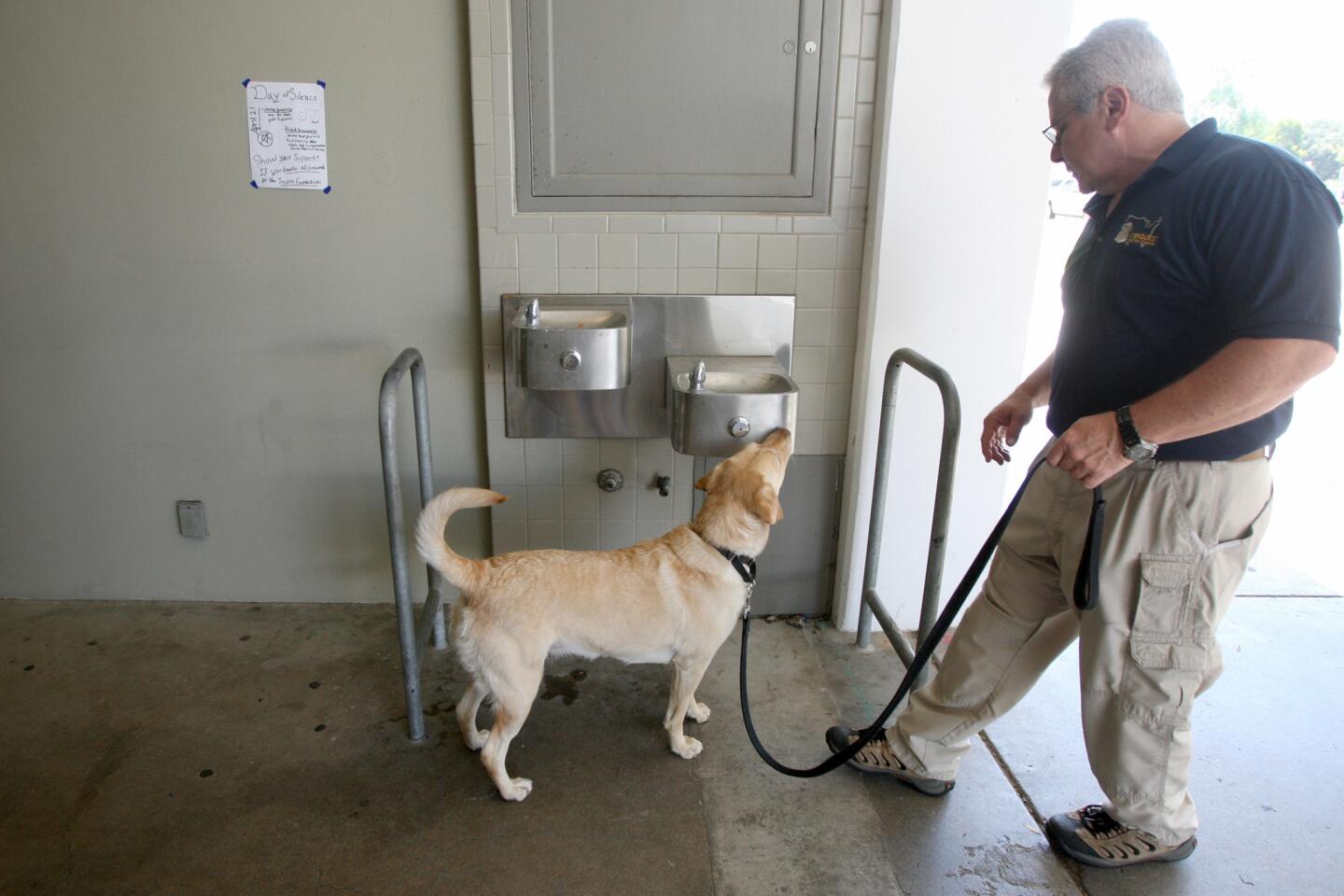La Cañada High passes the smell test during visit from contraband-sniffing dog
La Cañada High School passed an important sniff test last week when a random canine search for drugs on campus turned up zero contraband items and no suspicious substances among the lockers, cars and classrooms searched.
The surprise visit was made last Thursday morning, by Bill Wigodsky from Interquest Detection Canines of San Marino and his sniffer dog, Cali, a 2-year-old Labrador retriever.
“She’s a contraband dog, so she’s not just checking for dope,” Wigodsky said, indicating Cali’s training for alcohol, gunpowder and prescription drugs containing opiates. “It’s not a matter of finding and busting — it’s really about the kids being sober and straight at school.”
LCHS Assistant Principal Mary Hazlett accompanied Wigodsky, reading a script before each classroom search to inform students of the process and let them know Cali was not allowed to sniff them personally, only belongings in the classroom.
Join the conversation on Facebook »
“We just go randomly floor by floor. The dog checks the lockers, checks cars and the classrooms,” Hazlett said, indicating past searches have turned up vape pens with nicotine or marijuana residue and prescription medications. “If we find something we contact home, and if [the student has] something they shouldn’t have, there are consequences.”
Canine searches were halted in 2010 when La Cañada Unified parent Guy Iversen, a federal public defender, informed district officials the procedure they were employing violated students’ right to privacy.
LCUSD revised its policies and regulations in the years that followed, but didn’t broach the subject of bringing dogs back to La Cañada High School until 2014, when administrators requested the matter be reconsidered.
In a Dec. 9, 2014, school board meeting, then-Assistant Principal Jarrett Gold cited an increased casual attitude among students about having drugs and paraphernalia on campus as the impetus for his request.
“The main reason we want to bring the canine searches back is, in essence, for the safety of our students,” Gold told school board members at the 2014 meeting. “The main goal of it is not apprehension of students, it’s prevention and education.”
With Iversen’s help, the district drafted a script to read before each search, and the canine visits recommenced starting in the 2015-16 school year. Since then, the script language has been modified so as not to encourage students to object, Hazlett said.
Eric Matejka, a deputy with the Crescenta Valley Sheriff’s Station who works closely with La Cañada schools, said he’s noticed fewer drug-related incidents since the searches resumed.
“We’ve really had a decline in this stuff,” Matejka said. “It’s great that they do this program, so kids and parents can feel safe coming into the environment.”
During her recent visit to LCHS, Cali’s spontaneous appearance at a Spanish class elicited more cries of affection from students than anything else, and Wigodsky promised they could pet her after the search.
Cali dutifully walked up and down desk rows sticking her muzzle into backpacks to try to pick up a scent. One pass turned up nothing, so the canine went outside for some meet and greet.
Wigodsky explained Cali started training at the tender age of 2 months, through playing fetch, to recognize scents and alert him by sitting still.
“This is all play for her,” the he said of the visit.
Twitter: @SaraCardine

